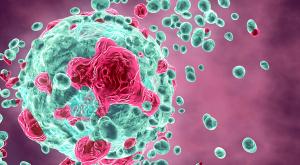Using a Patient’s Immune System to Treat Skin Cancer
Advancements have been made over the last decade in the use of immunotherapy for the treatment of skin cancers including melanoma, squamous cell carcinoma and Merkel cell carcinoma.
In recent years, immunotherapy has become another option for the treatment of patients with skin cancer including melanoma, squamous cell carcinoma and Merkel cell carcinoma, with more options currently being assessed in clinical trials.
According to the National Cancer Institute, immunotherapy is a treatment that can either stimulate or suppress the immune system to help a patient’s body target cancer cells.
CURE® spoke with Dr. Jedd D. Wolchok, director of the Sandra and Edward Meyer Cancer Center at Weill Cornell Medicine in New York, to learn more about how immunotherapy is being used to treat skin cancer, available options, potential side effects and what to expect in the future.
Can you explain a bit about how immunotherapy can be an effective treatment option for patients with skin cancer?
Immunotherapy is a relatively recent addition to the list of standard approaches to cancer care. And of course, historically, the acknowledged ones were surgery, radiation and chemotherapy. Chemotherapy could likely also include the targeted pathway inhibitors that are very specific for the aberrant signaling pathways in cancer. But all of those strategies focus on the cancer cell as the target for their therapy.
Immunotherapy, in some sense, has the person's immune system as its target. So the most recently approved immunotherapy medicines, which largely fall into the category of checkpoint inhibitors, are targeting normal immune cells — mainly T cells — to try to allow them to function more effectively in terms of recognizing and responding to cancer.
How recently did immunotherapy enter the picture as a treatment option for skin cancers?
The current generation of immunotherapies were approved starting in 2011. So within the past 12 years, the first of these checkpoint inhibitors was approved.
Historically, there were three other medicines that have been used to treat cancer that fall into the category of immunotherapy. One of them is an immune hormone, or cytokine, called interleukin-2, which, since the mid ’90s, was used to treat melanoma and kidney cancer. Use of that medicine has dropped off in the wake of development of the current generation of checkpoint inhibitors.
And then interferon alfa has been used to treat some cancers in the past, but that has largely stopped and now treatment of those cancers — specifically chronic myelogenous leukemia and melanoma in the past — have now been addressed using more potent, more effective modalities.
And then a currently in use immunotherapy is actually a live bacteria called BCG, which is a bacteria related to tuberculosis and is actually used after surgery to prevent recurrence of superficial bladder cancer.
For patients with skin cancer, what are the immunotherapy options currently available?
There are a few. There are the drugs that block what's called the PD1 pathway. Many of these immune checkpoints are best considered as sort of molecular brakes on the immune system that keep the immune system from getting too activated. And so there are several medicines that block the PD1 pathway that have been approved to treat melanoma and also advanced squamous cell carcinoma, as well as a more rare kind of skin cancer called Merkel cell carcinoma.
And there's another immune checkpoint blocking drug that blocks CTLA4, which is also used to treat melanoma. And there is another immune checkpoint called LAG-3, which has a blocking agent that's approved in combination with a PD1-blocking drug.
Is immunotherapy a viable treatment option for all patients with skin cancer?
That depends upon the particular subset of skin cancers. So obviously, the greatest use is probably in melanoma right now just by virtue of the extended nature of the data that's available and also the degree to which these drugs have been explored in melanoma now for I would say almost 20 years. So these immunotherapy drugs have been approved to treat metastatic melanoma or stage 4 melanoma for quite some time.
Starting a few years later, the CTLA-4 blocking drug ipilimumab (Yervoy) was approved to treat stage 3 melanoma after surgery.
More recently, several of the PD1-blocking drugs have been approved for stage 2 melanoma after surgery in those people who are of relatively higher risk to have a recurrence. And in the case of squamous cell cancer, it's really for advanced, really nonremovable squamous cell carcinoma.
Are there any side effects to immunotherapy that are common among patients with skin cancer? And how are those side effects potentially managed?
We always have to think about side effects when we talk about the benefit of these drugs. And the side effects are largely not unique to people who have skin cancer. They are a class effect of these immunotherapy medicines. And they're very much unlike the side effects that we see with other forms of anti-cancer therapy.
Most people think about hair loss, nausea, vomiting and decreases in blood counts as being characteristic side effects of chemotherapy drugs. In the case of immunotherapy, the side effects really resemble autoimmune disease, so inflammation of normal organs, because really, what we've let the immune system do with these immune checkpoint inhibitors is to run past that physiologic governance, run past that ceiling of activity that normally keeps our immune system under control.
We see inflammation of the skin, or rash. We see inflammation of the intestines, which is diarrhea or upper gastrointestinal upset. We can see inflammation of the liver, which is manifested usually on blood tests, where we see liver function tests becoming abnormal. We see fatigue that happens with these drugs. Sometimes that's due to immune attack of normal glands that produce hormones in the body, like the thyroid or the pituitary gland. Those are really some of the more common ones.
But really, what we've seen is inflammation in almost every part of the body. We've seen kidney inflammation, we've seen heart, lung, brain inflammation.
The good news is that for most of these side effects, as long as there's good communication between the person being treated and their treatment team, we can settle these down quite quickly with standard immune-suppressing medicines. And for reasons that we don't quite understand, treatment of the side effects does not have a significant impact on the efficacy in terms of the anti-tumor effect.
Are there any advancements related to immunotherapy in skin cancer on the horizon?
We are always looking for new opportunities to help people more. There are new immune-regulating pathways that are the subject of ongoing clinical trials.
There is another branch of immunotherapy, which comes under the category of cell therapy, which involves administering either immune cells that have been purified out of someone's surgically removed tumor back as a transfusion, and that's called tumor infiltrating lymphocyte or TIL therapy. That's in the latest stages of clinical testing. And we expect to hear more about an FDA approval for that approach hopefully later this year, but we don't know yet.
There are engineered immune cells, which are immune cells that have been obtained from someone's blood through a dialysis-like procedure and then engineered in a laboratory to make them home in on tumor cells directly. This is something that's already in routine use for leukemias and lymphomas for blood cancers, and it's called CAR T-cell therapy. But there are now clinical trials of similar approaches being launched for skin cancers.
This transcription has been edited for clarity and conciseness.
For more news on cancer updates, research and education, don’t forget to subscribe to CURE®’s newsletters here.
Related Content
 Understanding Adjuvant and Neoadjuvant Melanoma Treatment
Understanding Adjuvant and Neoadjuvant Melanoma TreatmentFebruary 18th 2024
 Experts Give an Overview of the Latest Melanoma Therapies
Experts Give an Overview of the Latest Melanoma TherapiesFebruary 15th 2024
 What’s the Plan for Patients With Melanoma After Surgery?
What’s the Plan for Patients With Melanoma After Surgery?January 10th 2024
 Why Melanoma May Need Treatment After Surgery
Why Melanoma May Need Treatment After SurgeryNovember 15th 2023
 Solid Cancer Approvals from Summer 2023
Solid Cancer Approvals from Summer 2023September 1st 2023
View additional resources on CureToday.com




